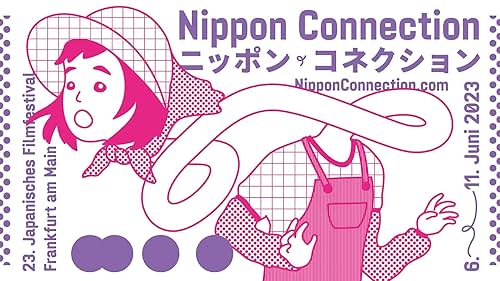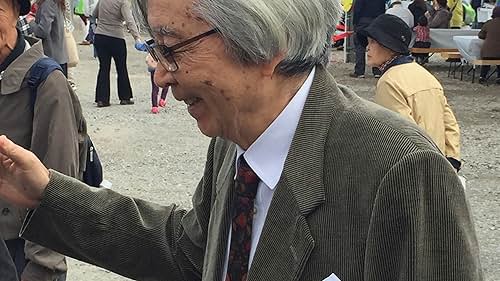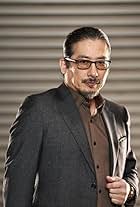
Historically speaking, many are used to looking at Japan during World War II for the more notorious aspects, such as the atrocities committed by the Imperial Japanese Army or the dictatorship rule of a militaristic government that regularly promoted ultra-nationalistic notions. It seems unreal to some that Japanese citizens had differing mindsets during this historical period of waging aggression. Yet, it would be unwise to label every individual in Japan as standing for the same values, as there were also plenty of pacifistic perspectives that were seen as controversial at the time. One can only imagine what it must have been like for children growing up during the Showa period with constant clashing mindsets. These elements would play into the narrative of Keisuke Kinoshita's “Twenty-Four Eyes,” a beautiful film that promotes love and pacificism during a time of nationalism and war.
Twenty-Four Eyes is screening at Nippon Connection
“Twenty-Four Eyes...
Twenty-Four Eyes is screening at Nippon Connection
“Twenty-Four Eyes...
- 6/12/2023
- by Sean Barry
- AsianMoviePulse
Ready for some full- on Japanese sentimentality? Superlative tough guy Ken Takakura takes us deep into heartbreak territory in search of a happy ending. Yoji Yamada’s Hokkaido road epic throws together a trio of ‘drifters of the heart’ to see if they can solve each other’s romantic dilemmas.
The Yellow Handkerchief
Blu-ray
Twilight Time
1978 / Color / 2:35 widescreen / Street Date November 14, 2017 / Shiawase no kiiroi hankachi / Available from the Twilight Time Movies Store / 24.95
Starring: Ken Takakura, Chieko Baisho, Kaori Momoi, Tetsuya Takeda, Hisao Dazai, Makoto Akatsuka, Mari Okamato.
Cinematography: Tetsuo Takaha
Film Editor: Iwao Ishii
Original Music: Masaru Sato
Written by Yoji Yamada, Yoshitaka Asama
Produced by Toru Najima
Directed by Yoji Yamada
Americans can experience difficulty navigating the sometimes- confusing sphere of Japanese humor. Cartoons, children’s films, action movies often seem crude or cruel, but can also be unexpectedly delicate. And some cultural barriers are still there — nobody...
The Yellow Handkerchief
Blu-ray
Twilight Time
1978 / Color / 2:35 widescreen / Street Date November 14, 2017 / Shiawase no kiiroi hankachi / Available from the Twilight Time Movies Store / 24.95
Starring: Ken Takakura, Chieko Baisho, Kaori Momoi, Tetsuya Takeda, Hisao Dazai, Makoto Akatsuka, Mari Okamato.
Cinematography: Tetsuo Takaha
Film Editor: Iwao Ishii
Original Music: Masaru Sato
Written by Yoji Yamada, Yoshitaka Asama
Produced by Toru Najima
Directed by Yoji Yamada
Americans can experience difficulty navigating the sometimes- confusing sphere of Japanese humor. Cartoons, children’s films, action movies often seem crude or cruel, but can also be unexpectedly delicate. And some cultural barriers are still there — nobody...
- 11/25/2017
- by Glenn Erickson
- Trailers from Hell
The Hidden Blade

BERLIN -- Yoji Yamada's The Hidden Blade continues the themes, settings and depiction of samurai heroism he so brilliantly developed in his last film, The Twilight Samurai (2002). A graceful pace allows Yamada to explore fully the life of a lower-caste samurai in a rural fiefdom, where money is always in short supply and clan pressures lurk just outside his compound. Yamada again turns to the short stories of Shuhei Fujisawa to draw an indelible portrait of a solitary samurai with an unyielding code of honor and dignity that never will allow him to stray even for a moment into disgrace.
As with Twilight Samurai, which earned international appreciation and an Oscar nomination for best foreign-language film, The Hidden Blade will do well in urban specialty venues in many markets.
Structurally, the two films are remarkably similar. (Yamada wrote this screenplay with Yoshitaka Asama.) In the first act, a samurai (Masatoshi Nagase) must rescue a woman (Takako Matsu) being abused in her married life. The second act witnesses an unspoken love bloom between these two even as the samurai's loyalty is called into question by corrupt superiors.
The third act contains a dual to the death between the samurai, who never has killed, and a man the clan has ordered him to kill. This time, the opponent is a friend and brother samurai (Yukiyoshi Ozawa), whose life he does not wish to take.
This new story takes place at the moment in the mid-19th century when European weaponry and military strategies are imported into Japan's conservative, feudal society. Much of this is played for comedy as soldiers awkwardly struggle to understand rifles, cannons and alien military training so at odds with the old-school methods of sword and knife. Yet you sense a kind of moral corruption has entered Japanese society, too, ushered in by these new and impersonal weapons.
The hero in both stories is virtually the same man, who very much represents the old school. His unswerving righteous might be boring were it not so fascinating to watch the samurai maneuver in a difficult society where divided loyalties and easy corruption litter his daily path. Similarly, the beauty and purity of the heroine might come off as bland were it not so touching to watch the mistreated woman blossom in the samurai's warm and caring household.
Yamada has performed a minor miracle with these two samurai films: He has managed a portrait of goodness and virtue that is neither cynical nor contrived. The director clearly believes in the samurai spirit and code. By reviving it on the screen with such empathy, Yamada demonstrates the true complexity of a simple life lived well.
This is a marvelously produced film from its quiet appreciation for the countryside to the minute details in its interior design. A mostly Western-style music score by Isao Tomita skillfully intertwines the classic with the intimate.
THE HIDDEN BLADE
Shochiku Co.
Credits:
Director: Yoji Yamada
Screenwriters: Yoji Yamada, Yoshitaka Asama
Based on stories by: Shuhei Fujisawa
Producer: Junichi Sakomoto, Takeo Hisamatsu, Hiroshi Fukasawa, Ichiro Yamamoto
Director of photography: Mutsuo Naganuma
Music: Isao Tomita
Costumes: Kazuko Kurosawa
Editor: Iwao Ishii
Cast:
Munezo Katagiri: Masatoshi Nagase
Kie: Takako Matsu
Samon Shimada: Hidetaka Yoshioka
Yaichiro Hazama: Yukiyoshi Ozawa, Shino: Tomoko Tabata
No MPAA rating
Running time -- 132 minutes...
As with Twilight Samurai, which earned international appreciation and an Oscar nomination for best foreign-language film, The Hidden Blade will do well in urban specialty venues in many markets.
Structurally, the two films are remarkably similar. (Yamada wrote this screenplay with Yoshitaka Asama.) In the first act, a samurai (Masatoshi Nagase) must rescue a woman (Takako Matsu) being abused in her married life. The second act witnesses an unspoken love bloom between these two even as the samurai's loyalty is called into question by corrupt superiors.
The third act contains a dual to the death between the samurai, who never has killed, and a man the clan has ordered him to kill. This time, the opponent is a friend and brother samurai (Yukiyoshi Ozawa), whose life he does not wish to take.
This new story takes place at the moment in the mid-19th century when European weaponry and military strategies are imported into Japan's conservative, feudal society. Much of this is played for comedy as soldiers awkwardly struggle to understand rifles, cannons and alien military training so at odds with the old-school methods of sword and knife. Yet you sense a kind of moral corruption has entered Japanese society, too, ushered in by these new and impersonal weapons.
The hero in both stories is virtually the same man, who very much represents the old school. His unswerving righteous might be boring were it not so fascinating to watch the samurai maneuver in a difficult society where divided loyalties and easy corruption litter his daily path. Similarly, the beauty and purity of the heroine might come off as bland were it not so touching to watch the mistreated woman blossom in the samurai's warm and caring household.
Yamada has performed a minor miracle with these two samurai films: He has managed a portrait of goodness and virtue that is neither cynical nor contrived. The director clearly believes in the samurai spirit and code. By reviving it on the screen with such empathy, Yamada demonstrates the true complexity of a simple life lived well.
This is a marvelously produced film from its quiet appreciation for the countryside to the minute details in its interior design. A mostly Western-style music score by Isao Tomita skillfully intertwines the classic with the intimate.
THE HIDDEN BLADE
Shochiku Co.
Credits:
Director: Yoji Yamada
Screenwriters: Yoji Yamada, Yoshitaka Asama
Based on stories by: Shuhei Fujisawa
Producer: Junichi Sakomoto, Takeo Hisamatsu, Hiroshi Fukasawa, Ichiro Yamamoto
Director of photography: Mutsuo Naganuma
Music: Isao Tomita
Costumes: Kazuko Kurosawa
Editor: Iwao Ishii
Cast:
Munezo Katagiri: Masatoshi Nagase
Kie: Takako Matsu
Samon Shimada: Hidetaka Yoshioka
Yaichiro Hazama: Yukiyoshi Ozawa, Shino: Tomoko Tabata
No MPAA rating
Running time -- 132 minutes...
- 2/15/2005
- The Hollywood Reporter - Movie News

The Twilight Samurai

Berlin International Film Festival
BERLIN -- The title of "The Twilight Samurai" (Tasogare Seibei) has a dual meaning. It is the disparaging nickname of the film's hero but also signifies the passing of the samurai era in 19th century Japan.
Eschewing action for a dramatic examination of character, veteran director Yoji Yamada has made a very contemporary samurai movie. This particular low-level samurai, a widower with two young girls and an aging mother to support, can't make ends meet on his monthly stipend. He even has to sell his beloved sword to pay for his wife's funeral.
Although the pace is slow, "Twilight" is a moving account of a family in crisis and the love that provides a short window of happiness for the father. The film has spent nearly three months in the Japanese boxoffice top 10 since it opened in November. Starring Hiroyuki Sanada from the original "Ring" series, the film could make its way into U.S. and other Western markets as well as Asian territories.
With 77 films to his credit -- 48 alone in his famous "Tora-san" series -- Yamada was moved to make his first samurai movie by a revisionist impulse. Simply put, he doesn't buy into the film fantasies about samurai that are perpetuated by fellow directors.
Based on three novellas by samurai author Shuhei Fujisawa, Yamada and Yoshitaka Asama's script centers on Seibei Iguchi (Sanada), a wage slave who rushes home each evening after work to tend to a motherless household, thus earning the nickname "Twilight". Forced to defend Tomoe (Rie Miyazawa), the sister of a good friend, from her brutal ex-husband, he beats the swordsman with only a wooden sword. Tomoe's brother later proposes that Seibei marry his sister, whom he has secretly loved since childhood. Seibei refuses, believing his poor stipend will eventually cause grief between him and his beloved.
Yamada's contemporary angle drains all glamour from the world of the samurai, which, of course, is exactly Yamada's point. Epic samurai movies have never reflected the reality of that period. And when the samurai went into decline, the job truly moved closer to the drudgery of a small-town bureaucrat than one of excitement and adventure.
Nevertheless, the notions of duty, honor and domestic happiness are very real. So Yamada's nostalgia for the samurai lies not in swordplay but in Seibei's striving for these values as he works to lift his family from poverty. Seibei is a true hero to Yamada, which has nothing to do with flashy stunts or CGI effects.
Rokuo Naganuma's elegant cinematography in rural locations and Isao Tomita's minimalist, traditional score lend beguiling dignity to this savvy, mature film.
THE TWILIGHT SAMURAI
Shochiku
Credits:
Director: Yoji Yamada
Screenwriters: Yoji Yamada, Yoshitaka Asama
Based on a story by: Shuhei Fujisawa
Producers: Shigehiro Nakagawa, Hiroshi Fukazawa, Ichiro Yamamoto
Director of photography: Rokuo Naganuma
Production designer: Mitsuo Degawa
Music: Isao Tomita
Editor: Iwao Ishii
Cast:
Seibei Iguchi: Hiroyuki Sanada
Tomoe: Rie Miyazawa
Zenemon Yogo: Min Tanaka
Running time -- 129 minutes
No MPAA rating...
BERLIN -- The title of "The Twilight Samurai" (Tasogare Seibei) has a dual meaning. It is the disparaging nickname of the film's hero but also signifies the passing of the samurai era in 19th century Japan.
Eschewing action for a dramatic examination of character, veteran director Yoji Yamada has made a very contemporary samurai movie. This particular low-level samurai, a widower with two young girls and an aging mother to support, can't make ends meet on his monthly stipend. He even has to sell his beloved sword to pay for his wife's funeral.
Although the pace is slow, "Twilight" is a moving account of a family in crisis and the love that provides a short window of happiness for the father. The film has spent nearly three months in the Japanese boxoffice top 10 since it opened in November. Starring Hiroyuki Sanada from the original "Ring" series, the film could make its way into U.S. and other Western markets as well as Asian territories.
With 77 films to his credit -- 48 alone in his famous "Tora-san" series -- Yamada was moved to make his first samurai movie by a revisionist impulse. Simply put, he doesn't buy into the film fantasies about samurai that are perpetuated by fellow directors.
Based on three novellas by samurai author Shuhei Fujisawa, Yamada and Yoshitaka Asama's script centers on Seibei Iguchi (Sanada), a wage slave who rushes home each evening after work to tend to a motherless household, thus earning the nickname "Twilight". Forced to defend Tomoe (Rie Miyazawa), the sister of a good friend, from her brutal ex-husband, he beats the swordsman with only a wooden sword. Tomoe's brother later proposes that Seibei marry his sister, whom he has secretly loved since childhood. Seibei refuses, believing his poor stipend will eventually cause grief between him and his beloved.
Yamada's contemporary angle drains all glamour from the world of the samurai, which, of course, is exactly Yamada's point. Epic samurai movies have never reflected the reality of that period. And when the samurai went into decline, the job truly moved closer to the drudgery of a small-town bureaucrat than one of excitement and adventure.
Nevertheless, the notions of duty, honor and domestic happiness are very real. So Yamada's nostalgia for the samurai lies not in swordplay but in Seibei's striving for these values as he works to lift his family from poverty. Seibei is a true hero to Yamada, which has nothing to do with flashy stunts or CGI effects.
Rokuo Naganuma's elegant cinematography in rural locations and Isao Tomita's minimalist, traditional score lend beguiling dignity to this savvy, mature film.
THE TWILIGHT SAMURAI
Shochiku
Credits:
Director: Yoji Yamada
Screenwriters: Yoji Yamada, Yoshitaka Asama
Based on a story by: Shuhei Fujisawa
Producers: Shigehiro Nakagawa, Hiroshi Fukazawa, Ichiro Yamamoto
Director of photography: Rokuo Naganuma
Production designer: Mitsuo Degawa
Music: Isao Tomita
Editor: Iwao Ishii
Cast:
Seibei Iguchi: Hiroyuki Sanada
Tomoe: Rie Miyazawa
Zenemon Yogo: Min Tanaka
Running time -- 129 minutes
No MPAA rating...
- 2/18/2003
- The Hollywood Reporter - Movie News
IMDb.com, Inc. takes no responsibility for the content or accuracy of the above news articles, Tweets, or blog posts. This content is published for the entertainment of our users only. The news articles, Tweets, and blog posts do not represent IMDb's opinions nor can we guarantee that the reporting therein is completely factual. Please visit the source responsible for the item in question to report any concerns you may have regarding content or accuracy.